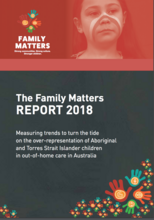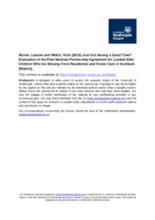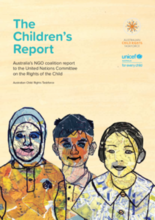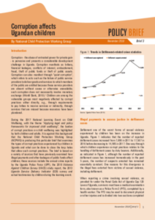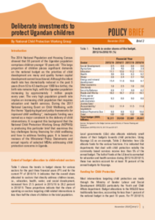Displaying 481 - 490 of 1798
Family Matters reports set out what governments are doing to turn the tide on the over-representation of Aboriginal and Torres Strait Islander children in out of-home care, and the outcomes for children and their families.
The current article provides a framework for developing an early childhood system of care that pairs a top‐down goal for the alignment of services with a bottom‐up goal of identifying and addressing needs of all families throughout early childhood.
This guidance report reviews the experience of and lessons learned from service provision in social welfare, child protection and childcare, health care, education and law enforcement. It presents methods, tools and service models that have proven effective in preventing and responding to corporal punishment.
This article explores the guardian ad litem (GAL) perspective on the main components of interprofessional collaboration (IPC).
This report is the evaluation of the pilot partnership agreement between Police Scotland and local authorities, for responses to children and young people missing from foster and residential care.
This report has two aims: (1) examine how well African governments are delivering on their promises and commitments to children and (2) provide a comprehensive, quantitative and qualitative view of the current realities and trends in the state of child wellbeing in Africa, and their implications for the future.
This report presents the findings from a national consultation with children and young people, conducted by UNICEF Australia.
This article examines Australia's 'Child Protection (Working with Children) Act 2012' ('the Act') and recent changes.
This brief from the National Child Protection Working Group (NCPWG) examines the types of corrupt practices experienced by children in Uganda and what can be done to close the loop holes that allow such corrupt practices. The brief highlights the impacts of corruption on children's wellbeing including "instances of falsifying birth histories of children to qualify for orphan status and consequently eligibility for international adoption."
This brief from the National Child Protection Working Group examines the key challenges facing financing for child wellbeing in Uganda and how to address funding gaps.

